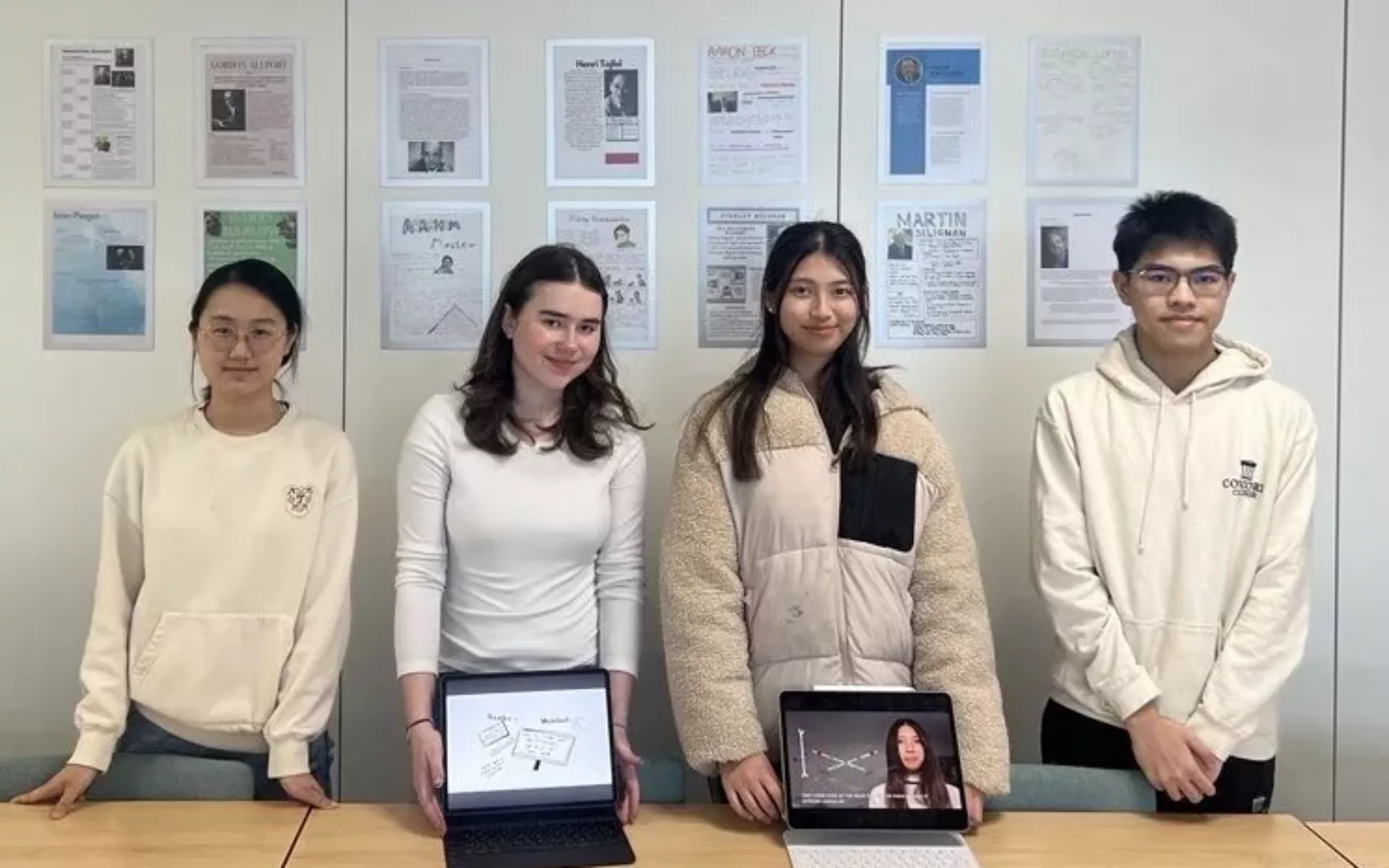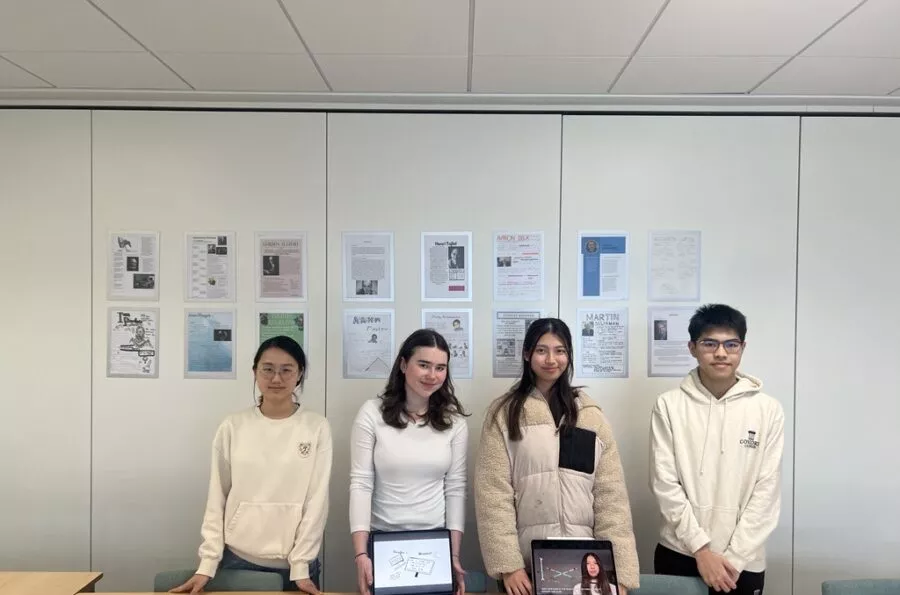Psychology Society Update ’24

Concord’s Psychology Society is run by students with an interest in the subject.
6.1 student Dallon explains the aims of its leadership team this year, their activities and introduces two fascinating pieces of work from the society’s members.
“Catherine and I have made our aim to support upper school students who desire to study Psychology in universities, as well as develop an interest in psychology among lower school students. From the start of the year, Catherine had held six sessions across various fields of psychology, looking at topics varied from Psychology in Anime to the bio-psycho-social aspect of caffeine. We have also organised a workshop with the BioChemistry Society in preparation for the British Biology Olympiad on the topic of Neurology. This time, we assisted two students Anastasiia and Cheryl to participate in the TOPSS Competition for High School Psychology Students held by the APA. They have created two fascinating pieces of work that are currently on YouTube, showing innovative thinking and creativity.”
Dallon 6:1
“Participating in the ‘TOPPS Competition for High School Psychology Students’ was a transformative experience which not only challenged my creativity and research skills but also my ability to manage time efficiently.
Having done video animations for previous projects, I thought it would be complementary to include animation in this project as well to engage the receiver through visual representation. Additionally, I spent a lot of time researching various topics regarding the ‘Cognition Pillars’ and found it quite challenging to decide upon a specific one. Nevertheless, I came upon the ‘Badder-Meinhof effect’ and found that I have experienced this phenomenon many times. This sparked my interest further and propelled me to present the information I found and also to link it to a potential solution for ADHD students. Finally, as the video couldn’t be more than three minutes long participating in this competition encouraged me to be concise and deliberate in what I had to say.
Overall, I think this competition was challenging but also very rewarding. To compete in a competition not only required extensive research but also encouraged me to explore how Psychology topics can be beneficial to the real world”
Anastasiia 6.1
“As someone who doesn’t take any sciences despite having once considered psychology at university, I decided to join the competition because it was a fun diversion from my usual studies. I chose to cover the idea of perception from cognition pillar, in order to answer the question of how binocular depth cues have led to an increased understanding of childhood strabismus, as well as its treatment and prevention of. This was a novel topic to me as someone with stereo vision, and I had researched quite a few papers into its causes, as well as the variety and effectiveness of treatments. The internet proved to be an anecdotal and scholarly treasure trove, and I found it particularly difficult to discriminate and narrow down my scope of ideas so that they were concise and linked back to my topic, that they answered the question at hand, and that I could cram it all into 3 meagre minutes. Overall, it was very challenging and there are a plethora of things I would change, but I participated without the intent of winning, but simply to enjoy the production process. It was still a very fun experience nonetheless and I’m glad I did it!”
Cheryl 6.1
Dallon (6.1) and Catherine (6.2) are joint leaders of the Psychology Society, both are 6.2 students.








